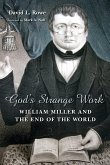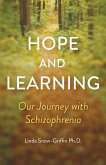Respected historian of science Ronald Numbers here examines one of the most influential, yet least examined, religious leaders in American history -- Ellen G. White, the enigmatic visionary who founded the Seventh-day Adventist Church. Numbers scrutinizes White's life (1827-1915), from her teenage visions and testimonies to her extensive advice on health reform, which influenced the direction of the church she founded. This third edition features a new preface and two key documents that shed further light on White -- transcripts of the trial of Elder Israel Dammon in 1845 and the proceedings of the secret Bible Conferences in 1919.
Hinweis: Dieser Artikel kann nur an eine deutsche Lieferadresse ausgeliefert werden.
Hinweis: Dieser Artikel kann nur an eine deutsche Lieferadresse ausgeliefert werden.








